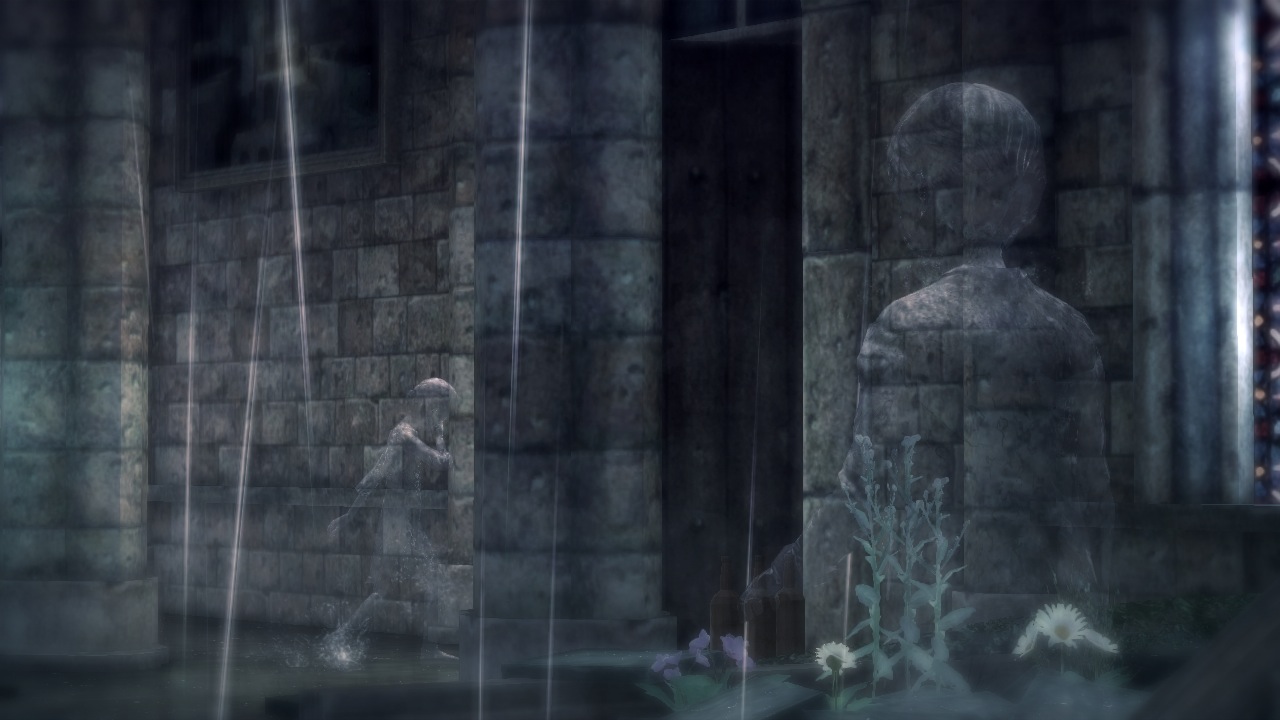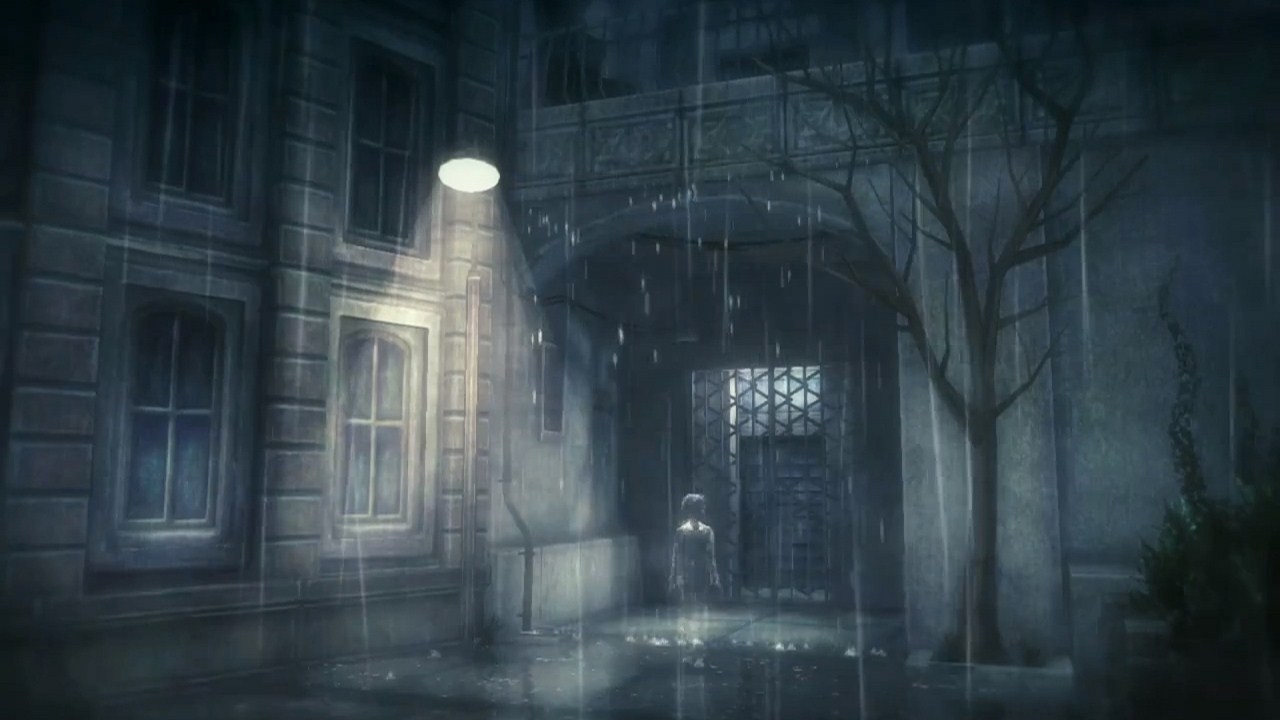Rain - Review
Playing Rain is like visiting an art gallery accompanied by an obnoxious voice describing every piece. You’re surrounded by beautiful, poignant scenes, emotional portraits, and wondrous displays of creativity, but rather than be allowed to appreciate them on your own terms the voice feeds you lines so you’re always intensely aware of what the artist wanted you to see and feel. Rain is full of this sort of descriptive exposition, opting to both show and tell you what’s happening in a way that ends up feeling far less meaningful than if I had been left to draw my own meaning from it.
Time and time again I’d find myself becoming wrapped up in the plight of the young boy and girl I was trying to help escape “the unknown”, only to be interrupted by a line of text inching around the corner making sure I understood what was happening. It felt as if the game didn’t trust me enough not to explicitly spell out each scene in excruciatingly melodramatic terms, being entirely transparent in its attempts to play with my emotions and failing each time.

Rain illustrates how less can be more; how holding back the urge to inform the audience can create a far more affecting ambiguity. I know this because there are moments in Rain where I was terrified or on the verge of tears.
Guiding two children through the rain as the monsters pursuing them edged closer is one of the most intense experiences I’ve had with a game in years. Rain excels in making you feel like the helpless child you’re playing as, tapping into a deep-rooted fear of being alone and powerless. When a monster was closing in on me my only hope was to run away, hoping I’d find a place too small for it to follow, or somewhere the rain didn’t reach and I could momentarily hide as my form turned invisible. I didn’t anticipate just how terrifying Rain would be, but in stripping itself down to a very plain and modest experience, its horrors became that much more understandable and frightening.
Rain is even more distressing because it’s impossible to anticipate when danger is approaching or from where. Each moment of peace brought with it a welcome reprieve from the horrors stalking me, but also an element of tension as I tried to gauge when they would inevitably return. Often though I would become so wrapped up in the small slice of joy being experienced by the young girl and boy I was shepherding, that it was impossible to continue with my paranoia as I joined them happily running through a circus or taking a moment to sigh in relief after a narrow escape.

Nothing about these scenes is ever especially deep, but they got to me maybe precisely because of their simplicity. There’s something very raw and relatable about Rain and how it puts you in the shoes of a child wandering a world far larger than they can manage, a world so thoughtfully constructed and framed with one of the best uses of a fixed camera I’ve seen in a game. Rain’s cinematography and artwork works at a fundamental emotional level, and that’s why it is so baffling to me that it can’t understand that.
For how much I began to care about helping these two children get home, it was amid a constant war with the game’s own narrative that constantly broke me out of the experience as I wondered endlessly why it was there. Any single scene in Rain could on its own elicit some emotional response through its elegant use of light and shadows, and a wonderfully emotive score. But when paired with its writing, that emotion begins to feel false. There is no line in Rain that needs to be there, every word simply exists as a response to what’s being shown on-screen. It’s as if concept notes were inexplicably left within the game, detailing aspects of a scene that should be plainly obvious to anyone watching and yet are still written out so there is absolutely no room for doubt.
Final Word
There are so many things I love about Rain, and yet when I think back to it all I can remember is how much I wish it had held itself back. There is a wonderful, touching experience at the base of Rain, but I can’t help but begin to question what part of my feelings were legitimate, and which were due to the game telling me how I should feel when it so continually outlines those feelings for you. I want to love Rain, but its unwillingness to let me do it on my own ultimately makes it hard for me to feel much of anything at all, and even then how can I trust these feelings are real?

